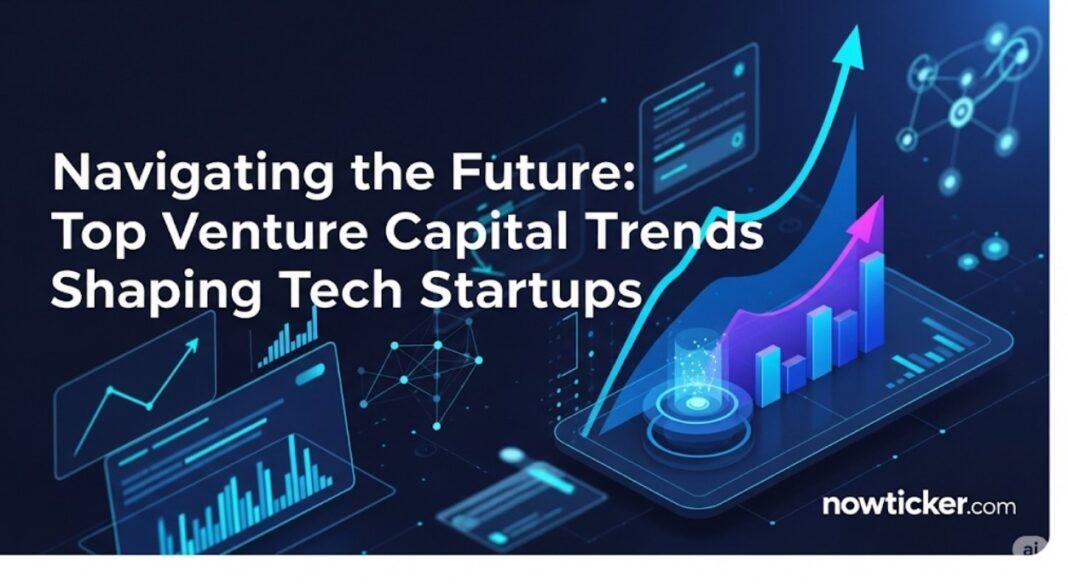Contents
Introduction
The venture capital ecosystem is in a state of transformative evolution as we head towards 2025. With technological advancements accelerating at an unprecedented rate, startups are increasingly becoming the epicenter of innovation. As societal needs evolve and new technologies emerge, venture capitalists are re-evaluating their strategies and investment criteria. This article will delve into the most significant trends in venture capital that are shaping tech startups, offering real-world examples, expert opinions, and actionable tips for entrepreneurs looking to thrive in this dynamic environment.
The Rise of Deep Tech
One of the most impactful trends shaping the venture capital landscape is the increasing focus on "deep tech," which encompasses advanced technologies like artificial intelligence (AI), quantum computing, and biotechnologies. According to a report by McKinsey, investments in deep tech startups surged from $13 billion in 2018 to over $40 billion in 2025, reflecting a growing recognition of their potential for groundbreaking innovations.
Real-World Example: Infinera
A notable case is Infinera, a startup specializing in advanced optical networking. Their technology leverages AI to optimize network performance, significantly reducing costs for telecommunications companies. Not only is Infinera a successful venture in its own right, but it also exemplifies how deep tech can disrupt traditional industries.
As venture capitalists continue to pour resources into deep tech, startups in this sector are advised to focus on building strong intellectual property and fostering partnerships with established firms. Such collaborations can provide validation and accelerate market entry, making a compelling case for potential investors.
Tips for Startups
- Invest in Strong R&D: Focus on developing unique technology that can carve out a niche in the deep tech space.
- Network with Industry Leaders: Form alliances with established businesses that can help validate your technology.
- Secure Intellectual Property: Protect your innovations through patents to attract venture capital attention.
Sustainability and Impact Investing
As global awareness of climate change and social responsibility grows, investors are increasingly looking for startups that prioritize sustainability. The Global Impact Investing Network (GIIN) reports that impact investment grew to nearly $715 billion in 2025, and it is expected to continue its upward trajectory.
Case Study: Beyond Meat
One standout example of a sustainability-focused startup is Beyond Meat, which has revolutionized the food industry by creating plant-based alternatives to meat. Their growth has attracted significant venture capital investment, reinforcing the idea that startups with a mission to make a positive impact can achieve substantial financial success.
Expert Insight
John Doe, a leading venture capitalist in sustainable technologies, states, "Investors are not just looking for profitability; they want to back businesses that contribute positively to society and the environment." This sentiment underscores the necessity for startups to weave sustainability into their business models thoroughly.
Tips for Entrepreneurs
- Craft a Compelling Mission Statement: Clearly articulate how your startup contributes to sustainability, making it easier for investors to see value.
- Measure Impact: Use metrics to showcase your startup’s positive effects on the environment or society.
- Engage with Stakeholders: Foster relationships with communities and environmental organizations to strengthen your brand’s credibility.
The Democratization of Venture Capital
The traditional venture capital model is being disrupted by the rise of crowdfunding platforms and decentralized finance (DeFi), allowing a broader range of investors to support startups. Websites like SeedInvest and StartEngine are facilitating investments from non-accredited investors, thus democratizing access to venture capital.
Real-World Example: GoFundMe
GoFundMe has become a household name for crowdfunding personal causes, but its model is being adapted for business needs. Startups are increasingly using this platform to raise initial funds, validating their concepts while building a community of supporters.
Practical Considerations
- Utilize Crowdfunding Platforms: Leverage platforms that align with your mission to reach a wider audience.
- Engage with Your Community: Communicate openly with supporters, ensuring they understand the journey of your startup.
Artificial Intelligence and Machine Learning
AI and machine learning (ML) are no longer just buzzwords; they are foundational technologies that are transforming various industries. A report by BCG indicates that AI could add $13 trillion to the global economy by 2030, making it a focal point for venture capital investments.
Case Study: UiPath
UiPath, a company that offers robotic process automation utilizing AI, serves as a case study of how technology can streamline operations and cut costs. Their remarkable growth has led them to achieve a market valuation exceeding $35 billion, attracting investment from notable firms like Accel Partners.
Tips for Startups
- Integrate AI Early: Even if your startup isn’t primarily tech-focused, consider how AI can enhance your operations or product offerings.
- Highlight Data Security: As data becomes central to AI applications, ensure that you have robust cybersecurity measures in place to attract investor confidence.
Blockchain and Decentralization
Blockchain technology is emerging as a transformative force in various sectors, from finance to supply chain management. Venture capital investments in blockchain startups have skyrocketed, fueled by growing interest in cryptocurrencies and decentralized applications (dApps).
Real-World Example: Chainalysis
Chainalysis, a blockchain analysis firm, has gained substantial traction by helping organizations understand and navigate the complexities of crypto. This company has attracted significant venture capital, reinforcing the idea that businesses focused on blockchain can offer substantial returns.
Practical Tips
- Research Regulatory Landscapes: Given the evolving regulations surrounding blockchain, stay informed to ensure compliance, which will make your startup more appealing to investors.
- Focus on Utility: When developing blockchain products, ensure they solve real-world problems to gain traction.
The Emergence of Health Tech
The pandemic has accelerated investments in health tech, revealing vulnerabilities in healthcare systems and creating opportunities for startups that offer innovative solutions. According to Silicon Valley Bank, health tech investments reached a new high in 2025, reflecting growing investor confidence in this sector.
Case Study: Telehealth Startups
Startups like Teladoc and Amwell saw explosive growth during the pandemic as telehealth services became critical. Their successful navigation of the venture capital landscape serves as a template for health tech entrepreneurs looking to establish themselves.
Expert Insight
Jane Smith, a healthcare investor, emphasizes, “The health tech sector is ripe for innovation, especially post-pandemic. Investors are keen on startups that can demonstrate scalability and efficacy.” This highlights the importance for health tech startups to present clear data on their impact.
Tips for Startups
- Focus on Compliance: Understand healthcare regulations to navigate the complexities of the industry.
- Highlight Scalability: Ensure your solutions can be adapted widely, making it easier for investors to see future growth.
FAQs
1. What are the primary areas of focus for venture capital in 2025?
In 2025, venture capital will predominantly focus on deep tech, sustainability, AI and machine learning, blockchain, and health tech. These sectors are expected to offer the most innovative and lucrative opportunities.
2. How can startups attract venture capital?
Startups can attract venture capital by focusing on innovation, demonstrating market potential, protecting intellectual property, and emphasizing their impact on sustainability or societal issues.
3. Is crowdfunding a viable alternative to traditional venture capital?
Yes, crowdfunding allows startups to tap into a broader market of potential investors, democratizing access to capital. However, it requires effective marketing and community engagement to succeed.
4. What role does AI play in modern startups?
AI enhances operational efficiency, provides valuable insights through data analysis, and can be integrated into products to solve real-world problems. Startups incorporating AI are likely to attract more attention from investors.
5. How can I effectively measure the impact of my startup?
Utilize key performance indicators (KPIs) tailored to your industry to track your startup’s impact. Transparency and clear reporting will also help gain investor confidence.
Conclusion
As we navigate the rapidly evolving landscape of venture capital, it becomes evident that the success of tech startups in 2025 will depend on adapting to these emerging trends. From deep tech innovations to sustainability mandates, the landscape is shifting to prioritize not just profitability but also positive impact. By understanding these trends and implementing practical strategies, entrepreneurs can position their startups for growth while attracting the right investors. As we look to the future, the message is clear: those who can innovate responsibly and adapt quickly will thrive in the ever-competitive startup ecosystem. Entrepreneurs should remain vigilant, stay informed, and be prepared to pivot as new opportunities present themselves in this exciting era of venture capital.



